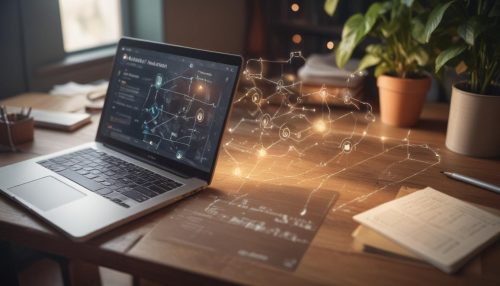The Rise of Slow Knowledge Consumption
Brian Taylor June 11, 2025
In a time when information overload is the norm and digital content moves at lightning speed, a countertrend is gaining traction: slow knowledge consumption. More educators, learners, and professionals are intentionally stepping back from rapid, surface-level content in favor of slower, deeper, and more deliberate learning experiences.
This emerging shift isn’t about rejecting technology—it’s about rethinking how we absorb and apply information in a way that’s sustainable, meaningful, and cognitively effective.

What Is Slow Knowledge Consumption?
Slow knowledge consumption is the practice of engaging with information at a measured pace, focusing on depth, reflection, and understanding rather than speed and volume. It mirrors the “slow food” or “slow travel” movements that prioritize quality and intentionality over efficiency.
Instead of watching video tutorials or skimming articles, people embracing this trend spend time with complex texts, re-read material, take handwritten notes, or discuss ideas over time with peers. The goal is to learn deeply rather than quickly.
Why Slow Knowledge Consumption Is on the Rise
Cognitive Overload Is Reaching a Tipping Point
According to a 2023 report by the Information Overload Research Group, professionals consume an average of 74 gigabytes of content daily. That includes messages, documents, notifications, and media—all processed in fragmented snippets. This fragmented attention impairs retention and decision-making.
Slow knowledge consumption offers a remedy. It allows the brain to form long-term connections instead of short-term reactions.
The Limits of Multitasking Are Now Clear
Multiple studies, including one by Stanford University, show that multitasking impairs learning and memory. When we split our attention, we reduce our brain’s ability to encode information properly. In contrast, consuming content slowly—without distraction—enhances comprehension and recall.
There’s Growing Demand for Mental Stillness
The rise of mindfulness, meditation, and digital detox culture reflects a growing discomfort with overstimulation. People are seeking not only calmer minds but also more intentional ways of learning. This is why slow knowledge consumption resonates so strongly today—it aligns with broader cultural shifts toward depth and presence.
How Slow Knowledge Consumption Is Transforming Education
Longer Reading, Less Cramming
Universities and educators are beginning to shift back toward long-form reading, Socratic dialogue, and analog note-taking. These methods may seem old-school, but they support stronger intellectual engagement. A 2022 Harvard study found that students who engaged with fewer, more complex texts scored higher on critical thinking assessments than peers who covered more content at faster speeds.
Digital Tools with Slower Intentions
Not all slow knowledge consumption is offline. Some digital platforms are adapting. Apps like Readwise and Zettelkasten-based note systems promote spaced repetition, annotation, and connection-based thinking—tools that emphasize deliberate processing over passive consumption.
The Benefits of Slow Knowledge Consumption
Slowing down how we learn isn’t just a mental health strategy—it’s a learning advantage. Here’s what research and practice show:
1. Improves Long-Term Retention
Spacing information over time and revisiting material increases retention. Known as the “spacing effect,” this phenomenon is well-documented in cognitive psychology and reinforced by slow learning strategies.
2. Fosters Critical Thinking
Fast content is optimized for clicks, not complexity. Slow knowledge consumption supports nuance, skepticism, and analytical thinking—skills that are vital in both academic and societal contexts.
3. Encourages Reflection and Synthesis
Reflection is an often-missing component in fast-paced learning. Taking time between learning sessions to write summaries, journal insights, or discuss ideas helps learners make meaning, not just consume data.
How to Practice Slow Knowledge Consumption
Incorporating this approach doesn’t require a lifestyle overhaul. Small, intentional changes can make a significant difference.
1. Choose Quality Over Quantity to practice Slow Knowledge Consumption
Select fewer books, articles, or videos—but commit to engaging with them deeply.
2. Take Notes by Hand
Writing manually increases processing time and improves comprehension, according to a 2021 Frontiers in Psychology study.
3. Use a Daily Knowledge Practice
Spend 15–30 minutes each day reading, reviewing notes, or reflecting without multitasking or distractions.
4. Join Discussion Groups
Talking about complex ideas slows down consumption while deepening understanding.
5. Avoid Learning on Fast Platforms
Reduce use of TikTok-style educational videos or “5-minute summaries.” Instead, opt for podcasts, essays, or long-form lectures.
Where This Trend Is Taking Hold About Slow Knowledge Consumption?
Slow knowledge consumption is showing up in:
- Education: College seminars, flipped classrooms, and minimalist curricula
- Corporate Training: Workshops replacing webinars, and employee learning journeys that emphasize deep learning over quick certifications
- Publishing: Growth in long-form newsletters, printed zines, and the return of book clubs
- Tech Detox Movements: Encouraging screen-free reading and analog knowledge engagement
This trend reflects a deeper societal reevaluation of how we value information and how it shapes our thinking.
Conclusion
As AI-generated content becomes ubiquitous and digital acceleration continues, the need for thoughtful, critical, human-driven learning only becomes more urgent. Those who engage with information more deliberately may not consume the most—but they may understand the best.
In a world saturated with speed, slow knowledge consumption stands as a powerful alternative—one that promotes clarity, mastery, and wisdom over mere information accumulation.
References:
- Mueller, P.A., & Oppenheimer, D.M. (2021) ‘The Pen Is Mightier Than the Keyboard’, Frontiers in Psychology, 12, article 647190. https://pmc.ncbi.nlm.nih.gov/articles/PMC6891259/
- Harvard University Center for Teaching and Learning (2022) ‘The Value of Deep Reading in Higher Education’. https://www.gse.harvard.edu/ideas/usable-knowledge/16/12/learning-read-learn
- Stanford University (2020) ‘Cognitive Costs of Multitasking’. https://news.stanford.edu/stories/2018/10/decade-data-reveals-heavy-multitaskers-reduced-memory-psychologist-says





